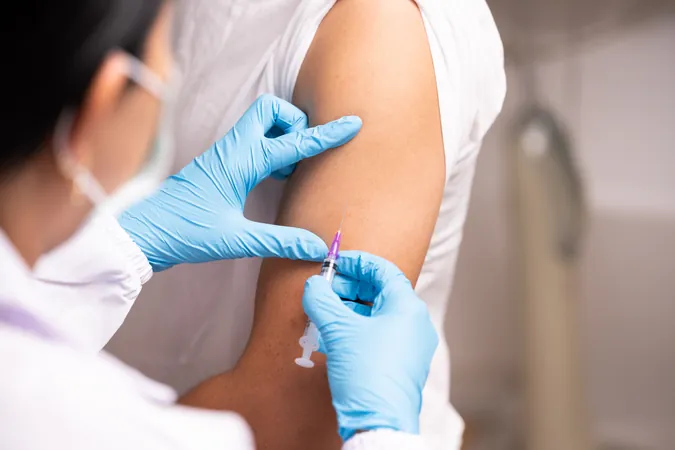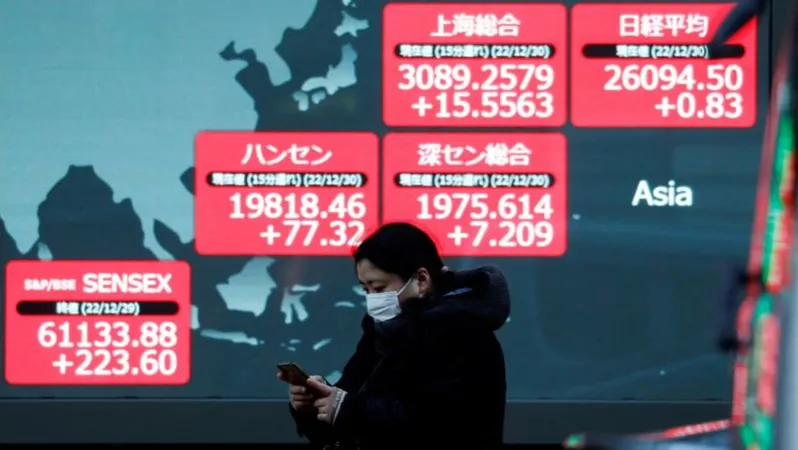
Revolutionary One-Dose HPV Vaccine Strategy Could Lead to Cervical Cancer Elimination!
2024-10-09
Author: Wei Ling
Revolutionary One-Dose HPV Vaccine Strategy Could Lead to Cervical Cancer Elimination!
A groundbreaking study published in the Canadian Medical Association Journal suggests that Canada might transition to a one-dose, gender-neutral approach to human papillomavirus (HPV) vaccination in a bid to eradicate cervical cancer. This exciting research, led by Drolet et al., emphasizes the potential of a simplified vaccination strategy amidst rising concerns about HPV-related diseases.
Understanding HPV and Its Impact
Human papillomavirus is a sexually transmitted infection and the primary cause of cervical cancer, which remains a significant health issue worldwide. Given the rising rates of HPV-related cancers, countries globally are exploring the feasibility of shifting from the traditional two-dose vaccination regimen to a single-dose approach. This shift comes in light of a 2022 recommendation from the World Health Organization (WHO) that advocates for one-dose vaccinations based on promising clinical trial data.
Study Insights and Implications
The researchers conducted a robust modeling study to analyze various scenarios for both one-dose and two-dose vaccination strategies. Their findings indicate that administering a single dose of the HPV vaccine could prevent just as many cases of cervical cancer as the standard two doses, assuming that vaccine efficacy remains robust during peak sexual activity years.
Highlighting the results, study authors stated, “All one-dose vaccination scenarios, even the least optimistic ones, showed a markedly more effective use of vaccine resources compared to the two-dose regimen. Each of these scenarios also projected the elimination of cervical cancer in Canada between 2032 and 2040." This ambitious timeline underscores the power of innovative vaccination strategies in public health.
Policy Implications and Future Directions
“Given our findings, important policy considerations arise not only for Canada but also for other high-income nations contemplating a shift to one-dose HPV vaccination,” noted Marc Brisson, a senior study author from Laval University. He advocates for continual surveillance of vaccine effectiveness to ensure long-term success.
The COVID-19 pandemic has severely disrupted vaccination efforts in Canada, particularly in vulnerable communities. The move to a one-dose vaccination strategy could not only save costs but also enhance logistical flexibility, creating opportunities to improve vaccination rates in underperforming regions and among high-risk groups ultimately affected by the pandemic's repercussions.
As public health officials weigh this strategic shift, the potential for reducing health inequalities and increasing overall vaccination coverage remains a driving force behind this research. One thing is clear: the future of HPV vaccination may hold the key to finally eradicating cervical cancer!
Stay tuned as we witness the unfolding of this pivotal moment in public health policy!





 Brasil (PT)
Brasil (PT)
 Canada (EN)
Canada (EN)
 Chile (ES)
Chile (ES)
 España (ES)
España (ES)
 France (FR)
France (FR)
 Hong Kong (EN)
Hong Kong (EN)
 Italia (IT)
Italia (IT)
 日本 (JA)
日本 (JA)
 Magyarország (HU)
Magyarország (HU)
 Norge (NO)
Norge (NO)
 Polska (PL)
Polska (PL)
 Schweiz (DE)
Schweiz (DE)
 Singapore (EN)
Singapore (EN)
 Sverige (SV)
Sverige (SV)
 Suomi (FI)
Suomi (FI)
 Türkiye (TR)
Türkiye (TR)